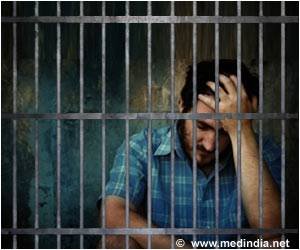NHRC’s Advisory and Government Responsibilities

The prison environment is inherently stressful and challenging, often exacerbating pre-existing mental health issues or leading to the development of new ones. The nature of confinement, separation from families and support systems, lack of autonomy, and exposure to violence and trauma all contribute to the strain experienced by inmates. Studies have shown that prisoners are more vulnerable to psychiatric disorders, such as depression, anxiety, post-traumatic stress disorder (PTSD), and substance abuse, compared to the general population.
In this high-stress environment, inmates may struggle to cope with their emotions and face barriers when seeking mental health support. The stigma surrounding mental health issues within the prison community can discourage individuals from seeking help, leading to the underreporting and undertreatment of mental health problems.
Alarming Prevalence of Prisoner Suicides
Perhaps the most alarming aspect of the mental health crisis in prisons is the high incidence of prisoner suicides. Recent data indicates that up to 80% of “unnatural deaths” among inmates are due to suicides. This alarming statistic sheds light on the urgent need to prioritize mental health support and suicide prevention strategies within correctional facilities.
Advertisement
Suicide is a devastating outcome with profound consequences for prisoners, prison staff, and the inmates’ families. These tragic events underscore the critical importance of proactive and compassionate interventions aimed at addressing the mental health needs of inmates.
NHRC’s Advisory: A Call for Action
Recognizing the severity of the mental health crisis among prisoners, the National Human Rights Commission has issued an advisory urging the government to take immediate action. The advisory emphasizes the following key points:
Assessing and Addressing Mental Health Needs:
Correctional facilities must conduct thorough assessments of inmates’ mental health needs upon admission and periodically throughout their sentences. Mental health screenings can help identify those at risk and ensure timely interventions.
Training for Prison Staff:
Equipping prison staff with adequate training in recognizing signs of mental distress and providing appropriate support is crucial. Creating a compassionate and understanding environment can encourage inmates to seek help and reduce the stigma surrounding mental health.
Suicide Prevention Strategies:
Implementing comprehensive suicide prevention programs tailored to the unique challenges of the prison environment is vital. Suicide risk assessments, crisis intervention, and access to mental health professionals should be readily available within the prison setting.
Collaboration with Mental Health Professionals:
Partnerships with mental health experts, psychiatrists, psychologists, and counselors are instrumental in ensuring that inmates receive the necessary treatment and support. Such collaborations can strengthen mental health services within correctional facilities.
Government Responsibility: Securing Inmate Well-Being
The responsibility for ensuring the mental well-being of prisoners rests significantly with the government and relevant authorities overseeing correctional facilities. By adopting a multi-faceted approach, the government can make substantial strides in addressing mental health challenges among inmates:
Increased Funding for Mental Health Services:
Allocating adequate funding to enhance mental health services within prisons is paramount. Investment in mental health infrastructure, training, and specialized staff can significantly improve outcomes for inmates.
Enhanced Staff-to-Inmate Ratio:
Reducing the staff-to-inmate ratio can facilitate increased interactions and personalized attention to the mental health needs of prisoners. This can foster a more supportive and caring environment within correctional facilities.
Mental Health Training for Prison Personnel:
Providing specialized training for prison staff on mental health awareness, crisis management, and de-escalation techniques can promote a more empathetic and understanding approach towards inmates with mental health concerns.
Collaboration with Mental Health Organizations:
Collaborating with mental health organizations and NGOs can augment existing mental health initiatives and provide access to external resources and expertise.
Post-Release Support:
Recognizing that mental health challenges do not end upon release, the government should ensure that former inmates have access to community-based mental health support and reintegration programs.
The prevalence of mental health issues and prisoner suicides within correctional facilities demands urgent attention and action. The NHRC’s advisory serves as a clarion call for the government to prioritize mental health support for inmates. By acknowledging the unique challenges faced by prisoners and addressing their mental well-being with compassion and diligence, we can foster a safer, more rehabilitative, and humane correctional system. Embracing these responsibilities, the government can pave the way for better outcomes, reduced recidivism, and the realization of a just and compassionate society for all.
References:
- https:nhrc.nic.in/media/press-release/concerned-suicides-prisons-nhrc-issues-advisory-centre-states-and-uts-stop-these
Source: Medindia
Source link
#NHRCs #Advisory #Government #Responsibilities



